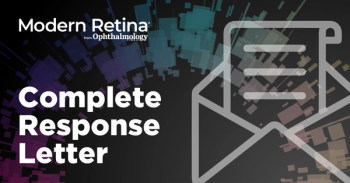
Why an altered microbiome can be associated with uveitis
Research highlights the correlation between the gut microbiome and autoimmune disorders.
In recent years, the gut microbiome has been shown to have a major impact on the overall body, in particular the immune system. Dysbiosis, an altered microbiome from the normal core microbiome, has been associated with both intestinal and extraintestinal autoimmune disorders, including uveitis, but causality has been difficult to establish.
Research published in The American Journal of Pathology1 provides an overview of the 4 proposed mechanisms of how the gut microbiome may influence the development of uveitis. These mechanisms are molecular mimicry, imbalance of regulatory and effector T-cells, increased intestinal permeability, and loss of intestinal metabolites.
In this review, the noted researchers summarize current literature on both animal and human studies in these 4 proposed mechanisms, establishing the links between dysbiosis and the development of uveitis. The summary of research also provides evidence for these mechanisms and explores the relationship that antibiotics have in the development autoimmune uveitis as shown in mouse models. According to the study, animal models have shown that dysbiosis is a causal factor of autoimmunity rather than only an association.
However, study limitations and the wide variability in the intestinal microbiome among populations and diseases make a specific targeted therapy difficult to establish. Ongoing research is necessary to understand the mechanisms involved in uveitis pathogenesis, which could potentially lead to the identification of new therapeutic targets.
Reference: 1. Janetos TM, Zakaria N, Goldstein DA. The Microbiome and Uveitis: A Narrative Review [published online ahead of print, 2023 Apr 4]. Am J Pathol. 2023;S0002-9440(23)00115-3. doi:10.1016/j.ajpath.2023.03.004
Newsletter
Keep your retina practice on the forefront—subscribe for expert analysis and emerging trends in retinal disease management.












































